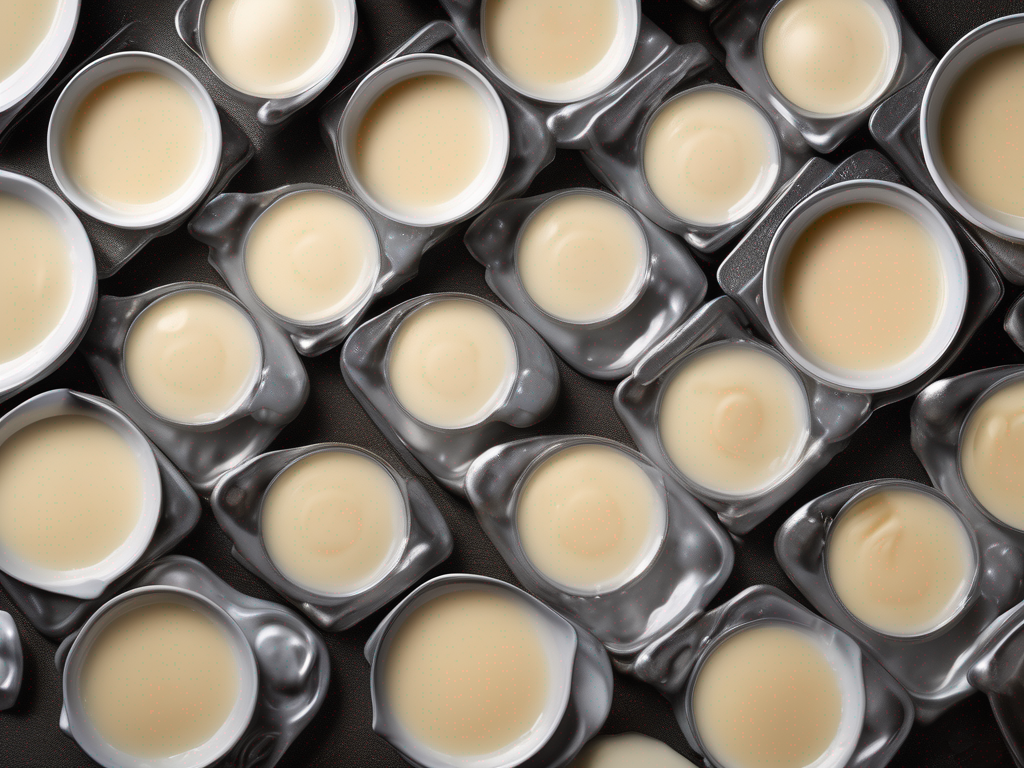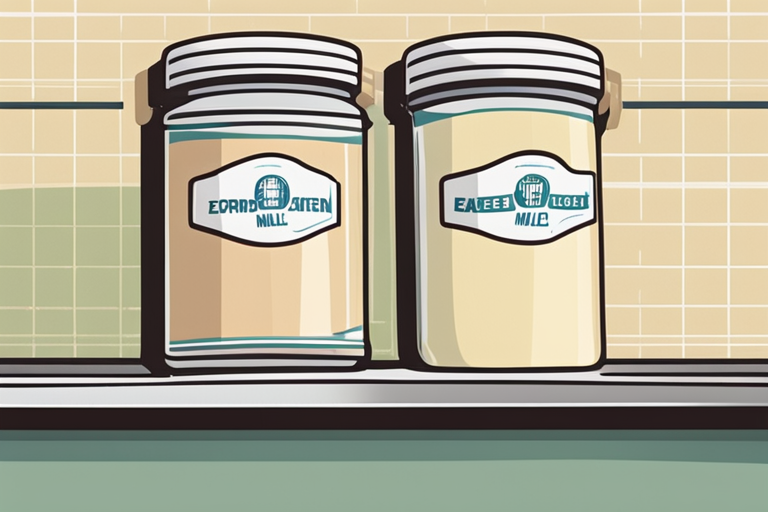
Is Evaporated Milk Safe to Use After the Expiration Date?
Comprehensive Guide to Evaporated Milk: Storage, Safety, and Expiration Dates
Evaporated milk is a versatile dairy product commonly used in various recipes to enhance their creaminess and richness. Understanding how to properly store, handle, and determine the expiration of evaporated milk is crucial to ensure its safety and quality. In this comprehensive guide, we will delve into the shelf life of evaporated milk, how to identify spoilage, best storage practices, and tips for using expired evaporated milk safely.
Food Storage Essentials
Products that help you store and preserve your food better
Disclosure: As an Amazon Associate, we earn from qualifying purchases. This helps support our site and allows us to continue providing free food safety information.
Shelf Life of Evaporated Milk
Evaporated milk is created by removing about 60% of the water content from fresh milk, giving it an extended shelf life compared to regular milk. However, it is essential to be aware of the expiration date indicated on the packaging.
Factors Affecting Shelf Life
- Storage Conditions: Proper storage plays a significant role in prolonging the shelf life of evaporated milk.
- Packaging: Canned evaporated milk tends to have a longer shelf life compared to carton-packaged varieties.
- Temperature: Maintaining a stable temperature is crucial for preserving the quality of evaporated milk.
Identifying Spoiled Evaporated Milk
Recommended Food Storage Products
Keep your food fresh and organized with these storage solutions
Disclosure: As an Amazon Associate, we earn from qualifying purchases. This helps support our site and allows us to continue providing free food safety information.
Apart from checking the expiration date, there are specific signs that indicate evaporated milk has gone bad:
Signs of Spoilage:
- Off Smell: A sour or unpleasant odor is a clear indicator of spoilage.
- Curdling: Visible separation of milk solids from the liquid.
- Unusual Color: Any discoloration, turning from white to yellow or brown.
- Mold Growth: Presence of mold on the surface of the evaporated milk.
Best Practices for Storing Evaporated Milk
Proper storage is key to maintaining the quality and safety of evaporated milk. Follow these guidelines:
Storage Tips:
- Cool Storage: Keep unopened cans in a cool, dry place away from direct sunlight.
- Refrigeration: Once opened, transfer any unused milk to an airtight container and store it in the refrigerator.
- Timely Consumption: Use opened evaporated milk within 3-4 days for optimal quality.
Using Expired Evaporated Milk
While it's recommended to adhere to expiration dates, here are some tips for using expired evaporated milk safely:
Safety Tips:
- Visual and Smell Check: Inspect for spoilage signs like off smells, curdling, or unusual color.
- Consider Storage Conditions: If stored properly and showing no spoilage signs, it may still be safe to use.
- Cooking Usage: Utilize expired evaporated milk in cooked dishes where high temperatures can eliminate harmful bacteria.
- Hygiene Practices: Maintain good hygiene when handling expired milk to prevent contamination.
Conclusion
In conclusion, understanding the shelf life, signs of spoilage, proper storage, and safe usage of evaporated milk are essential for maintaining food safety. By following the recommendations outlined in this guide, you can enjoy the versatility of evaporated milk in your recipes while ensuring its freshness and quality. Always prioritize food safety, trust your senses, and discard any questionable products. With these practices in place, you can confidently incorporate evaporated milk into your culinary creations.
For more information on evaporated milk and additional food safety tips, visit our evaporated milk section for regular updates and insights.
Related Posts
- Can Canned Milk Go Bad?
- Understanding Condensed Milk Expiry: How Long Does It Last?
- Is Evaporated Milk Safe to Use After the Expiration Date?
- Making Sense of Expiration Dates on Evaporated Milk
- Is Sweetened Condensed Milk Good After the Expiration Date?
- The Ultimate Guide to Canned Evaporated Milk Expiration

Is evaporated milk safe to use after the expiration date has passed?
How should evaporated milk be stored to ensure its safety and quality?
Can evaporated milk be frozen to extend its shelf life?
What are the signs that evaporated milk has gone bad?
Can evaporated milk be used in recipes past the expiration date?
Food Storage Essentials We Love
Products that help you store and preserve your food better
Disclosure: As an Amazon Associate, we earn from qualifying purchases. This helps support our site and allows us to continue providing free food safety information.
Scan your food directly and get instant safety info using our AI-powered camera feature.




